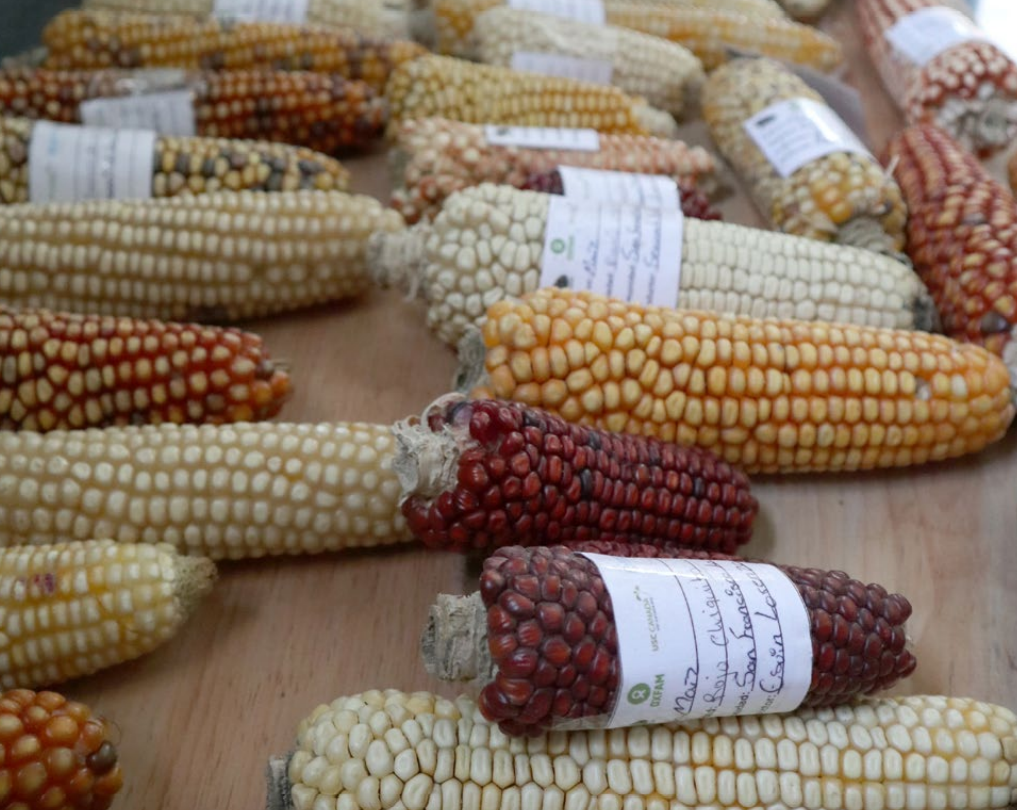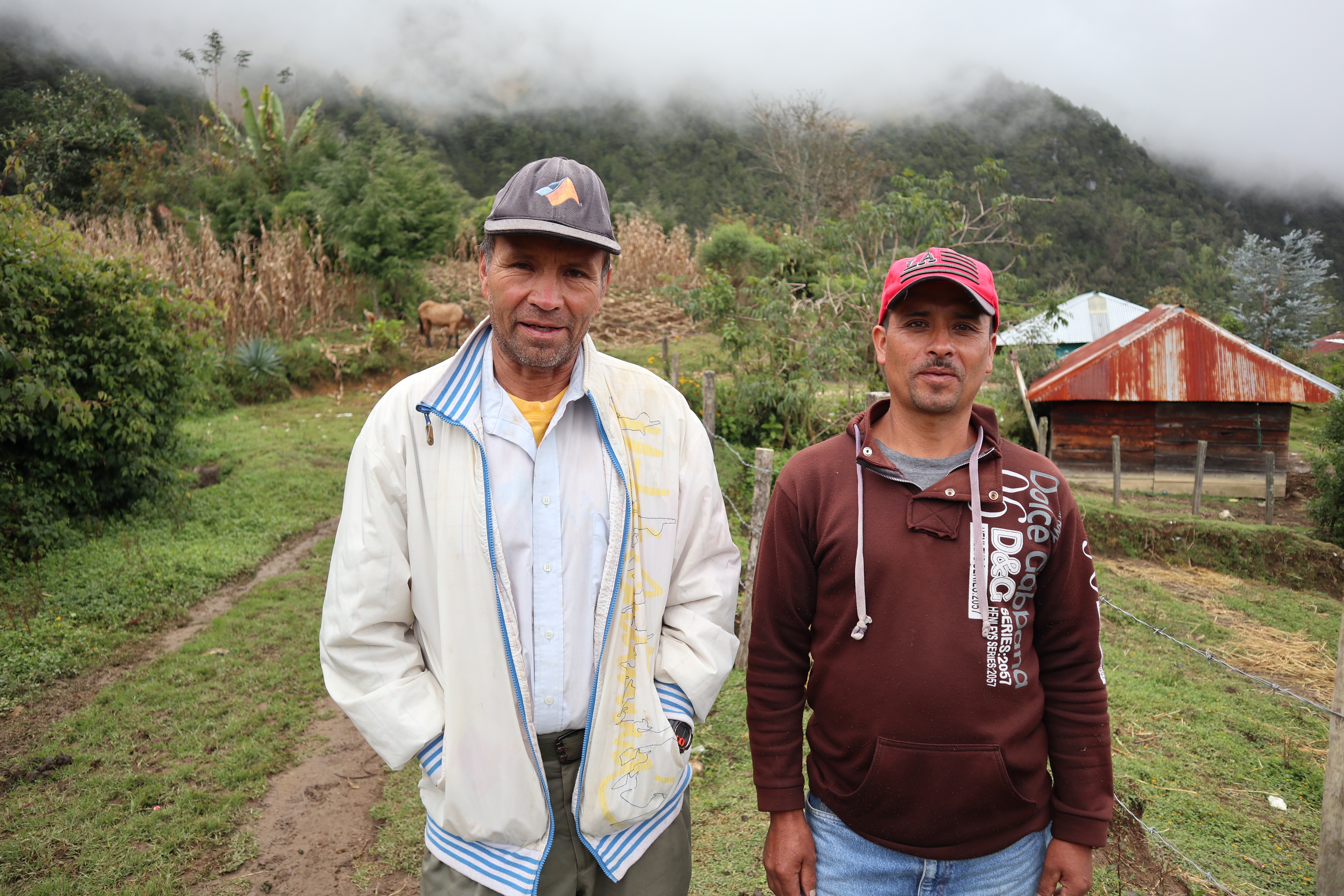Why context matters in ecosystem resilience: Five insights from India and Guatemala
TMG and partners publish the results of an analysis of community resilience initiatives at several study sites in India and Guatemala
by Harry Stopes, Wangu Mwangi | 2021-10-05

Farm planning, Peten, Guatemala, 2018. Amelia Coj, ADIMI
The link between healthy ecosystems and resilience to climate change is well established. Healthy ecosystems absorb greenhouse gas emissions and “reduce vulnerability to climate-related extreme events and other economic, social and environmental shocks and disasters.” What is perhaps less well known is the role of social capital – simply defined as the existence of shared values and connections that enables individuals and groups to work together to solve common challenges – in adapting to climate change.
The interplay among these and other determinants of ecosystem health are at the heart of the Ecosystem-based Adaptation (EbA) approach. EbA can be defined as “the use of biodiversity and ecosystem services as part of an overall adaptation strategy to help people to adapt to the adverse effects of climate change.’ In order to understand how these interrelationships play out at the local level, TMG Research and its partners carried out an analysis of longstanding community resilience initiatives at several study sites in India and Guatemala.
Carried out between 2019 and 2020, the study provides five key insights on how to enhance bottom-up EbA processes.
Empowerment of local communities is a prerequisite for EbA action. Our study found that EbA delivers for people where inclusive and participatory modes of governance are well established. Village-level committees, such as those convened by partner WOTR in Maharashtra, India, work as consultative bodies, ensuring broad ownership of decisions made. They can also oversee the agreed natural resource management processes such as water allocation – so that water is shared fairly and used sustainably – or forest management. Community-run seed banks in San Francisco, Guatemala are another example of a community-based knowledge resource.
Community based organisations can play an important role in catalysing EbA processes. Our research further revealed the crucial role that civil society organisations (CSOs) play in orchestrating and amplifying EbA actions. With their extensive knowledge of local contexts, community-embedded CSOs, such as farmer organisation ASOCUCH in Huehuetenango region in Guatemala, often enjoy a high degree of trust, and are therefore able to ensure that local adaptation needs are taken into account in higher-level climate planning and in government bodies. As ‘bridge-builders’, these organisations can facilitate the empowerment of local people.

Local maize varieites labelled in a community-run seedbank established by ASOCUCH in San Francisco, Guatemala. The seedbanks store a broad range of varieties adapted to local conditions, including more drought tolerant native varieties. (Image: TMG)
In addition to fostering environmental and social principles, EbA initiatives need to make economic sense. Investing in EbA, especially for smallholder farmers, requires upfront investments. In order to take on the considerable risks involved in transitioning to more sustainable farming practices, farmers need to understand that such efforts will pay dividends in the long run. But for many farmers, the capital outlay required may simply be out of their reach. It is therefore essential that community EbA initiatives also explore non-farm financial incentives to boost farmers’ income.
EbA can be used to generate additional income sources for local communities, for example through ecotourism activities in India. (Image: WOTR)
EbA entails managing trade-offs among different interests. EbA projects almost always involve making choices among competing options, or exploring how best to balance between equally valid economic, social, and environmental imperatives. The need to conserve forests may conflict with practices of firewood gathering, while in contexts of scarcity the needs of all villagers for drinking water may pose challenges for farmers irrigating their fields. To safeguard the needs and interests of all stakeholders, it is therefore important to ensure that EbA decisions are mediated by legitimate participatory local governance processes.
As public goods, EbA funds must be accessible to local communities. If well designed and executed, EbA initiatives can help to redress unequal resource allocation and power imbalances that aggravate the vulnerability of women, indigenous communities and other groups. This can be done, for example, through providing access to climate-resilient seeds, or channeling a portion of payments for ecosystem services generated through community efforts.

Forest monitoring brigade, Huehuetango, Guatemala. Members of ASOCUCH can receive funds channelled from the Guatemalan national forest programme for establishing forest monitoring. (Image: TMG)
In conclusion, we found that EbA projects build on a pre-existing landscape of programmes, projects and governance structures. This history matters when introducing or upscaling EbA. Successful EbA projects will be designed with an understanding of both the strengths and shortcomings of existing initiatives, harnessing and adapting the former, while integrating them into EbA’s systemic approach.
To find out more about how communities and local support groups can be supported in making ecosystem-based adaptation thrive, check out our policy paper ‘Ecosystems for resilience’, published recently in both English and Spanish versions.
Follow TMG on Twitter as well as our partners ADIMI, WWF Mesoamerica, and WOTR, to stay up to date with our work on EbA.
The Climate-SDG Integration project: Supporting the implementation of the Paris Agreement and the 2030 Agenda through Ecosystem-based Adaptation (2015–2021) is implemented by a consortium of partners, namely: TMG Research gGmbH (Berlin, Germany); WWF Mesoamerica and ADIMI (Guatemala City, Guatemala); and WOTR (Pune, India). Funded by the International Climate Initiative (IKI) of the German Federal Ministry for the Environment, Nature Conservation and Nuclear Safety (BMU), the project’s core objective was to develop roadmaps for scaling up EbA in India and Guatemala.
 Urban Food FuturesFeb 09, 2026
Urban Food FuturesFeb 09, 2026Pushing the horizon: Urban farming and community-led innovation in Mukuru informal settlement
A small community-run greenhouse in Mukuru is offering insights into how controlled-environment agriculture can strengthen food security in urban environments under increasing pressure—and a look into the future of food systems in informal settlements.
Christian Sonntag, Emmanuel Atamba, Lumi Youm
 Land GovernanceDec 18, 2025
Land GovernanceDec 18, 2025Land tenure, women’s land rights, and resilience: Reflections from CRIC23 toward UNCCD COP17
Our experts discuss what the exchanges at CRIC23 highlighted and revealed about the role of secure and gender-equitable land tenure in the UNCCD's work ahead of the 2026 triple COP year.
Frederike Klümper, Washe Kazungu
 Urban Food FuturesDec 09, 2025
Urban Food FuturesDec 09, 2025The story of Mukuru's Urban Nutrition Hub
In Mukuru informal settlement, a safe haven for women has grown into the Urban Nutrition Hub, a multi-purpose space for nutrition education, training, and community development, demonstrating the potential of grassroots community-owned innovation..
Serah Kiragu-Wissler


